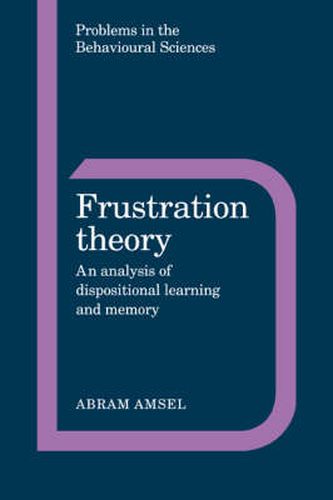Readings Newsletter
Become a Readings Member to make your shopping experience even easier.
Sign in or sign up for free!
You’re not far away from qualifying for FREE standard shipping within Australia
You’ve qualified for FREE standard shipping within Australia
The cart is loading…






We live in a world in which inconsistency is the rule rather than the exception and this is particularly true for rewards and frustrations. In some cases, rewards and frustrative non-rewards appear randomly for what seems to be the same behaviour; in others a sequence of rewards is suddenly followed by non-rewards, or large rewards by small rewards. The important common factor in these and other cases is frustration - how we learn about it and how we respond to it. This book provides a basis in learning theory and particularly in frustration theory, for a comprehension not only of the mechanisms controlling these dispositions, but also of their order of appearance in early development and, to an approximation at least, their neural underpinnings.
$9.00 standard shipping within Australia
FREE standard shipping within Australia for orders over $100.00
Express & International shipping calculated at checkout
We live in a world in which inconsistency is the rule rather than the exception and this is particularly true for rewards and frustrations. In some cases, rewards and frustrative non-rewards appear randomly for what seems to be the same behaviour; in others a sequence of rewards is suddenly followed by non-rewards, or large rewards by small rewards. The important common factor in these and other cases is frustration - how we learn about it and how we respond to it. This book provides a basis in learning theory and particularly in frustration theory, for a comprehension not only of the mechanisms controlling these dispositions, but also of their order of appearance in early development and, to an approximation at least, their neural underpinnings.